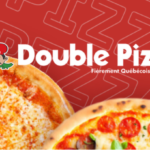A career is more than a job. It is the arc of our working life, shaped by choices, circumstances, ambition, and often, by chance. It begins with early aspirations and evolves over time through learning, opportunities, setbacks, and adaptation. While many perceive a career as a linear progression toward success, the truth is far more nuanced. It is a personal journey that often involves redirection, skill shifts, and moments of questioning what truly matters.
Read:- Best Agriculture Courses After 12th
In today’s world, the very concept of a career has shifted. Unlike earlier generations who often stayed in one job or industry for decades, modern professionals now find themselves transitioning between multiple roles and industries. The gig economy, remote work culture, technological disruption, and changing societal values have all contributed to reshaping how careers are built and sustained.
The Foundations of Career Decisions
The roots of career choices often trace back to childhood. Influences like family expectations, school achievements, and early role models begin shaping our perception of what’s possible or acceptable. For instance, a child growing up in a household where parents are engineers may naturally lean toward technical fields, either out of admiration or exposure. Similarly, cultural context, financial stability, and access to resources play a significant role in what paths feel accessible.
However, not all early choices align with long-term fulfilment. Many individuals realise only later in life that their initial direction may have been based more on external validation than internal passion. This realisation is not a failure but an important step in self-awareness that often drives a course correction toward a more meaningful path.
Education and Its Role in Career Building
Education continues to be the stepping stone for most career journeys. Whether formal university degrees or vocational training, the skills and qualifications acquired during this stage often determine initial employment opportunities. But there is increasing recognition that academic excellence alone does not guarantee career satisfaction or success.
Soft skills such as communication, emotional intelligence, adaptability, and critical thinking are becoming just as important as technical proficiency. Furthermore, the rise of online learning platforms has democratized education, enabling people to reskill or upskill without returning to full-time institutions. This has made career shifts more feasible, even for mid-level professionals or those from non-traditional backgrounds.
Still, there remains a gap between academic syllabi and real-world application. Employers often seek experience, industry exposure, and practical thinking—qualities not always nurtured within the classroom. As a result, internships, volunteer work, and side projects have gained importance in shaping employability.
Career Planning: Myth vs Reality
Much has been said about career planning—charts, five-year plans, goal-setting strategies. While these tools are valuable, they often paint an overly structured image of how careers unfold. In reality, few people follow a neat, uninterrupted path. Industry changes, health concerns, family responsibilities, and even global events like recessions or pandemics can throw the most detailed plans off course.
Rather than viewing career planning as a rigid blueprint, it’s more practical to see it as a compass. Having direction is important, but so is the flexibility to reroute when needed. It is also essential to periodically reassess priorities. For instance, a young professional may chase high-income roles early on but later seek work-life balance or purpose-driven roles as personal circumstances evolve.
The key lies in being proactive yet open-minded. Professionals who embrace continuous learning and reflection are more likely to pivot successfully when change becomes inevitable.
Work Satisfaction: Beyond the Paycheck
A fulfilling career goes beyond salary figures. Of course, financial compensation matters—it brings stability, rewards effort, and enables lifestyle choices. But studies consistently show that job satisfaction also stems from factors like autonomy, growth opportunities, respectful work environments, and alignment with personal values.
People who feel seen, heard, and appreciated tend to stay longer in roles and contribute more meaningfully. On the other hand, environments marked by high stress, poor leadership, or misaligned expectations often lead to burnout or quiet quitting.
The pursuit of meaning in work is not a luxury reserved for a few; it is a legitimate desire across industries and professions. Whether a person is a teacher, designer, coder, or tradesperson, the intrinsic reward of seeing one’s efforts make a difference plays a huge part in long-term career happiness.
The Rise of Non-Traditional Careers
The world of work has undergone a major shift in the last decade. Career options that were once considered unstable or unconventional—such as freelance writing, YouTube content creation, game design, or social media management—are now thriving professions. Likewise, jobs in sustainability, AI ethics, mental health, and remote consulting are emerging due to societal and technological shifts.
This shift is a double-edged sword. On one hand, it has broadened the scope for personal expression and autonomy. On the other, it requires individuals to be more entrepreneurial, adaptive, and capable of self-management. Freelancers and independent professionals, for example, must learn not just their craft but also sales, negotiation, time management, and financial planning.
Parents and educators must also catch up with this shift. There is a pressing need to support the next generation in exploring non-traditional careers without judgment, offering them exposure, mentorship, and realistic expectations.
Career Setbacks: Lessons in Disguise
No career is immune to obstacles. Rejections, layoffs, difficult bosses, failed ventures—these are part and parcel of professional life. The difference lies in how one responds. Setbacks can erode confidence or, alternatively, foster resilience, grit, and new insights.
In many cases, what appears to be a roadblock becomes a redirection. For example, being passed over for a promotion might lead someone to reassess their priorities, seek mentorship, or finally take the leap toward starting their own business. Similarly, losing a job may provide the nudge needed to pursue long-postponed passions or freelance opportunities.
What matters most is the ability to view such experiences as temporary and as opportunities for reflection and learning. Support systems—whether through family, career coaches, or peer groups—can make a significant difference during these transitions.
The Importance of Mentorship
Mentorship is often overlooked in discussions about career growth. Yet, having someone to guide, challenge, and support you through various stages can make a significant impact. A good mentor not only shares knowledge but also offers perspective, feedback, and encouragement at critical junctures.
In today’s world, mentorship can come in many forms—formal arrangements, workplace sponsors, online communities, or even passive mentorship through books and podcasts. The key is to remain curious and seek out people whose experiences and values align with your goals.
Mentorship is not a one-way relationship either. As individuals progress in their careers, giving back by mentoring others can also be deeply fulfilling. It fosters a culture of collaboration, continuity, and shared growth.
Work-Life Balance and Well-Being
As conversations around mental health and wellness become more mainstream, the relationship between career and personal well-being is receiving much-needed attention. Hustle culture once glorified long hours and burnout as badges of honour. But today, more professionals are pushing back, seeking roles that support rather than consume their lives.
Work-life balance doesn’t mean working less; it means working sustainably. It involves knowing when to pause, setting healthy boundaries, and allocating time for relationships, hobbies, rest, and health. Employers too are waking up to the reality that happy employees are more productive and loyal.
Burnout is not just an individual issue—it is systemic. Building a meaningful career means recognising when your job supports your overall life, and when it starts taking more than it gives. Making adjustments is not weakness; it is wisdom.
Career and Identity: The Deeper Connection
Our careers are often deeply tied to our sense of identity. What we do becomes a part of how we introduce ourselves, how we measure our worth, and even how others perceive us. This is why career changes, breaks, or perceived failures can hit harder—they don’t just affect income, they challenge our self-concept.
This connection can be both powerful and problematic. It motivates people to strive, but it can also lead to overidentification, where one’s entire worth gets tied to professional success. It’s important to cultivate identity anchors beyond the workplace—family roles, passions, community involvement, spirituality, or personal goals.
A healthy career journey involves aligning work with values but also recognising that we are more than our job titles. This perspective helps in navigating changes, setbacks, and transitions with greater grace and confidence.
Conclusion
A career is a long, evolving relationship between who we are and what we choose to do with our time and talents. It’s built over decades through choices, challenges, recalibrations, and meaningful moments. In a world that constantly changes, the most rewarding careers are those approached with self-awareness, curiosity, adaptability, and a desire for purpose.
Rather than aiming for a final destination, think of a career as a lifelong learning process. It’s not about having all the answers at the beginning but about staying open, thoughtful, and intentional in the journey ahead.
Whether you’re just starting out, in the middle of a shift, or seeking new meaning after years of experience, your career can still grow with you. After all, it is one of the few journeys where the destination is less important than the direction.






